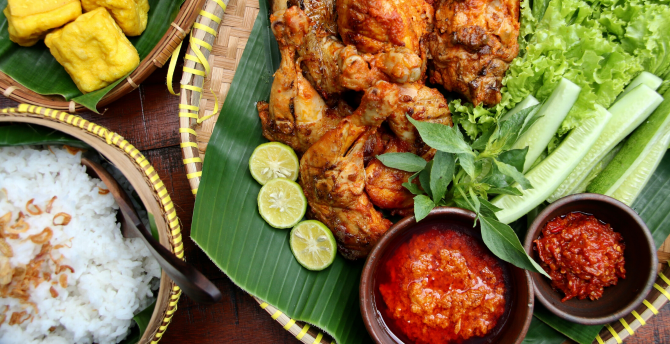Newsletter | Can food prices be more affordable through central planning? Absolutely not
- Center for Indonesian Policy Studies

- Jan 31, 2022
- 3 min read
Updated: Apr 25, 2022
Dear Readers,
As we exited 2021 and began 2022, food prices have been on the top of my mind.
In the run-up to festivities, prices of many essentials tend to rise significantly. Chinese New Year will be in February, the holy fasting month of Ramadan begins in April and ends in Eid al Fitr in May. Those periods are times of higher demand for food and thus prone to higher prices.
Such seasonal price hikes are predictable. Yet year after year, Indonesian see large swings in prices and tears for the humble consumer.
Unsurprisingly then that the government becomes under pressure to show that it’s taking action to get prices under control.
Recently, the government has developed the Neraca Komoditas, or NK. It’s a sort of commodity balance sheet compiling data on production and demand for commodities, including staple food items.
The idea is that with the data, the government can decide on quotas and issue permits for imports and exports; depending on whether the government determines that the data shows that there is adequate domestic supply to meet future industry and consumer demand.
I’ll also note that no other developed country uses such a method to make trade decisions. We were alarmed when it was first put forward. But before we outright condemned the scheme, we wanted to understand the nuances and facts first.
The result is an analysis which will be launched at the end of this month. Make sure you register for our event when we do.
The report looks at the good and bad points of the NK. It lays out the facts that could be used as a base for all stakeholders, including the public, to evaluate this scheme.
I won’t divulge too much about this upcoming report, it is very nuanced and should be approached with reasoned discussion. We see some small advantages coming out of NK that could reduce opportunities for corruption for example.
But it is not a solution if the aim is to alleviate Indonesia’s food price problems. It does not change anything in what we see as the root cause – the use of import and export quotas.
The NK’s function is to decide on trade quotas. But it fails to acknowledge the role and function of prices in making trade decisions.
Trade quotas are based on data from the past. As anyone who has been involved in business or economic analysis in this country, they will also know ‘good’ data is hard to come by.
Because of this, NK is already inherent with flaws. Even if the data is solid, it will tell you nothing about the future.
At CIPS we are advocating to get the government to recognize the role of prices and market mechanisms in guiding trade policies. We are under no illusion that an economy as large and vast as Indonesia’s can ever be centrally planned.
Instead, private market actors are best able to make their own import and export decisions because they face the day-to-day realities on the ground. It’s why prices are important. They signal and inform decisions made at the ground level where trade and commerce actually take place.
While the NK is still undergoing development, it is CIPS’ view that civil society and the private sector should remain skeptical and vigilant about the NK as we hear more about it.
With economic development and the livelihoods of Indonesians on the line, the last thing we need is the choking of trade and the reduction of economic opportunities.
In the coming months, expect to hear more updates as we host various discussions related issues under the Think20 Taskforce 4 on Food Security and Sustainable Agriculture .
Again, do make sure to subscribe here to be up to date on the latest developments about NK and our other work. We’ll be publishing our report very soon.
Do continue to stay safe!
Salam hangat,
Rainer Heufers
Executive Director
Center for Indonesian Policy Studies



Comments